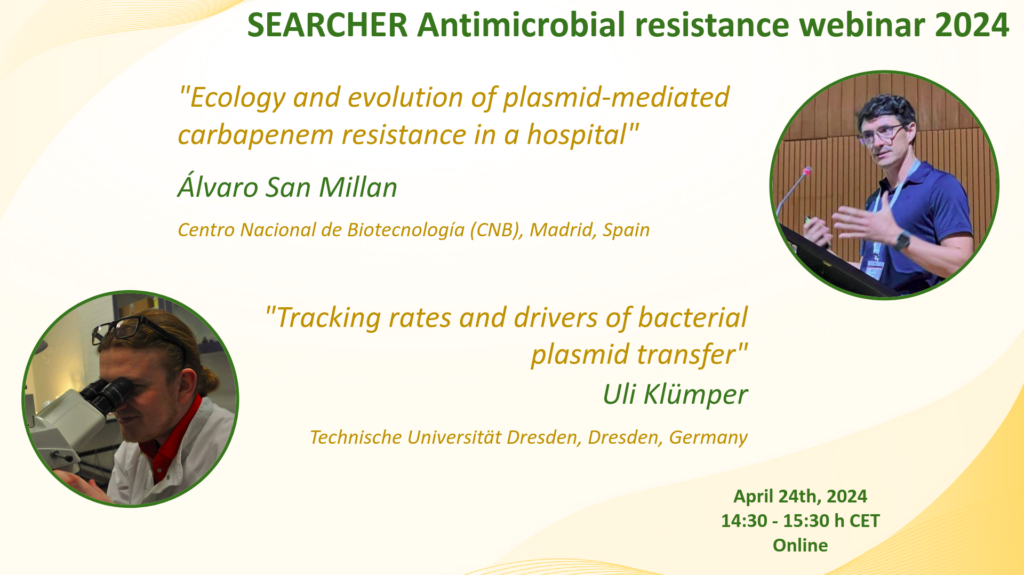September 13, 14:00 CEST
Molecular and culture based methods for AMR survillance in aquatic environments and animals
Jonas Bonnedahl (PAIRWISE)
Rabaab Zahra (EMBARK)
Moderator: Víctor Hugo Jarquín Díaz
Aim of PAIRWISE: Advance knowledge of antimicrobial resistance (AMR) as a pollution in aquatic environments, wildlife, and livestock. PAIRWISE focuses on dispersal and dynamics of antibiotic resistant bacteria (ARB), antibiotic resistance genes (ARG) and antibiotics (ATB) in aquatic environments affected by wastewater treatment plants (WWTPs)
Registration link: https://gu-se.zoom.us/webinar/register/WN_-JzV45FURtOLplnjjPX58w
October 11, 14:00 CEST
AMR: a link between clinical settings and other environments
Adam Roberts (STRESST)
Etienne Ruppé (EMBARK)
Moderator: Rémi Gschwind
Aim of STRESST: Determine if hospital wide antimicrobial stewardship implementation will reduce antibiotics and antibiotic resistant bacteria from entering the environment
Registration link: https://gu-se.zoom.us/webinar/register/WN_9lZFdYRtQQK26_OunaZQ4A
November 15, 14:00 CEST
Ecology and evolution of ARGs: From surveillance to intervention strategies
Craig MacLean (MOB-TARGET)
Sofia K. Forslund (EMBARK)
Moderator: Ulrike Löber
Aim of MOB-TARGET: Stablish a series of novel interventions based on phages to combat mobile resistance genes
Registration link: https://gu-se.zoom.us/webinar/register/WN_-_3u2ftzSQm2-DnfC4PUKA
